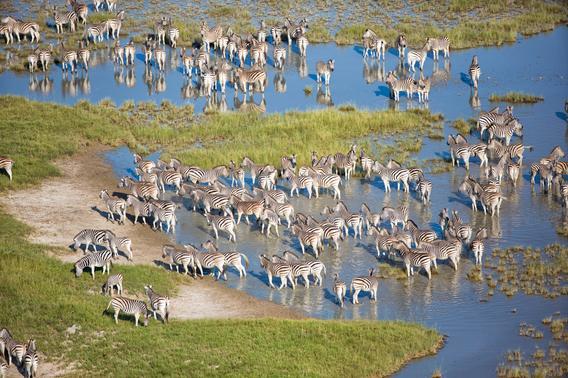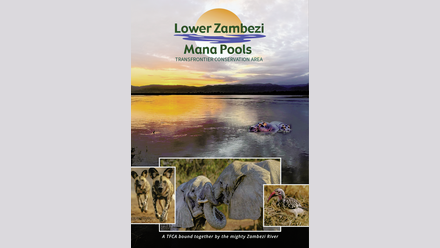Natural Selection - World Environment Day 2024: Land Restoration, Desertification & Drought Resilience

“We abuse land because we regard it as a commodity belonging to us. When we see land as a community to which we belong, we may begin to use it with love and respect.” – Aldo Leopold
June 5th serves as a day to recognise the damage that’s been done to our planet and the work being done to restore it. As the UN’s Environment Programme states, ‘we are the generation that can make peace with the land.’
Natural Selection was founded by conservationists and since our inception we’ve been committed to environmental conservation and protecting Africa’s important wildlife areas for future generations. Not only are we custodians of over 1.6 million hectares of land, but many of the initiatives that we support, have a positive contribution to protecting and restoring the planet’s wildest places and landscapes. We have a multi-faceted programme to achieve this and it centres around the large mammal migration through the Makgadikgadi Pans.
Here's a look at the work being done on the ground…
Makgadikgadi Large Mammal Migration
Along with our conservation partners, we’re working towards the long-term restoration of a large mammal migration route that originates in the Okavango and Chobe areas and moves down to the Makgadikgadi National Park and back.
Up until the 1960s, this was the longest and likely the largest migration of zebra and wildebeest in the whole of Africa. Unfortunately land use changes meant that extensive fencing was erected across these migration routes to accommodate European standards for beef production, bringing the annual journey to an end. This left zebra and wildebeest trapped and reliant on fewer resources. After 50 years, the migration re-emerged with the help of a few fence demolition-driven elephants. However, the landscape through which this migration had previously flourished was much changed, calling for conservation action.
Impacts of Surface Water on Herbivore Ecology and Socio-Ecological Knock-On Effects
In partnership with the Department of Wildlife and National Parks and our operating partners Uncharted Africa, we funded the installation of artificial waterholes inside the park and in an adjoining concession in support of the renewed migration. This was followed by two important studies that we have funded into water usage: one looking at surface water usage by cattle and another that considers surface water usage and impacts by migrating mammals in relation to climate change. Natural surface water is integral to the survival of both livestock and wildlife and both projects will provide key data for developing land use plans for the area that benefit all stakeholders.
Elephant Collaring
One of the largest stakeholders in the Makgadikgadi landscape is the elephant. In an effort to better understand elephant movement in relation to this changing landscape, we are also funding elephant collaring and tracking, which is being carried out by one of our conservation partners, Elephants for Africa. Elephants were not as abundant in the 1960’s before fences were erected. But as more and more elephants moved out of dangerous areas and into Botswana, there became an even greater need for restored movement of large mammals between Botswana’s protected areas.
The elephant movement study will shed light on which areas are of ecological importance and which are likely to lead to encounters with humans.
Conservation Education Programmes
Although we place great importance on understanding the movements of wildlife and their landscape needs, without addressing human-wildlife conflict and education, these efforts would be in vain. Our human-wildlife conflict mitigation efforts and conservation education programmes are an important part of the conservation puzzle, and help to foster landscapes in which animals and people can more easily co-exist. To bring tools for coexistence and conservation education to the local people in this area, we partnered with EFA and Coaching Conservation through our Meno a Kwena Camp.
AIA N!ORE MOTHERS 4 NATURE
This upcoming project is run by Aleksandra Orbeck Nilssen, and strives to create an environment where indigenous wisdom and the nurturing spirit of Ju/’hoansi mothers serve as cornerstones for the protection and preservation of the Makgadikgadi and Botswana’s Kalahari. Indigenous knowledge adds tremendous value to land use planning and will be an important consideration for Makgadikgadi’s future. This program will be based out of Jack’s camp area, so watch this space…
For imagery, quotes or further information please contact Lindsy Terry
[email protected]

